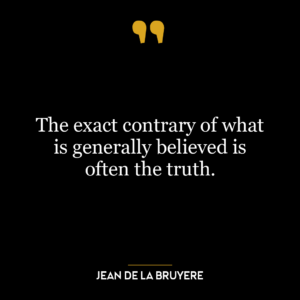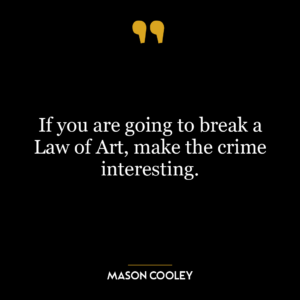This quote suggests that the value of an idea or proposition lies more in its ability to provoke thought, spark curiosity, and stimulate intellectual discourse, rather than in its absolute truth. It emphasizes the importance of exploration, critical thinking, and the process of inquiry over the finality of truth. The quote suggests that an interesting proposition, even if it turns out to be false, can lead to a more profound understanding of the world than a true but uninteresting one.
This idea can be seen in many aspects of today’s world. In scientific research, for instance, hypotheses that are initially considered “false” often lead to groundbreaking discoveries. These hypotheses, although not true in their original form, were interesting enough to encourage further investigation and ultimately advance our knowledge.
In the realm of personal development, this quote can be interpreted as a call to embrace curiosity, open-mindedness, and the willingness to challenge established truths. It suggests that the journey of learning and self-improvement is not about accepting truths passively but actively seeking out interesting ideas and perspectives. Even if these ideas turn out to be false, they can still lead to personal growth and a deeper understanding of oneself and the world.
Moreover, in the era of “fake news” and misinformation, this quote can serve as a reminder to value the process of critical thinking. It encourages us to engage with different ideas, even those that seem untrue, and to use them as a starting point for our own investigations and reflections.
In essence, the quote champions the process of questioning, exploring, and learning over the acceptance of established truths. It encourages us to be intellectually adventurous, to engage with ideas that are challenging, intriguing, and thought-provoking, and to value these experiences for the growth and understanding they provide.







